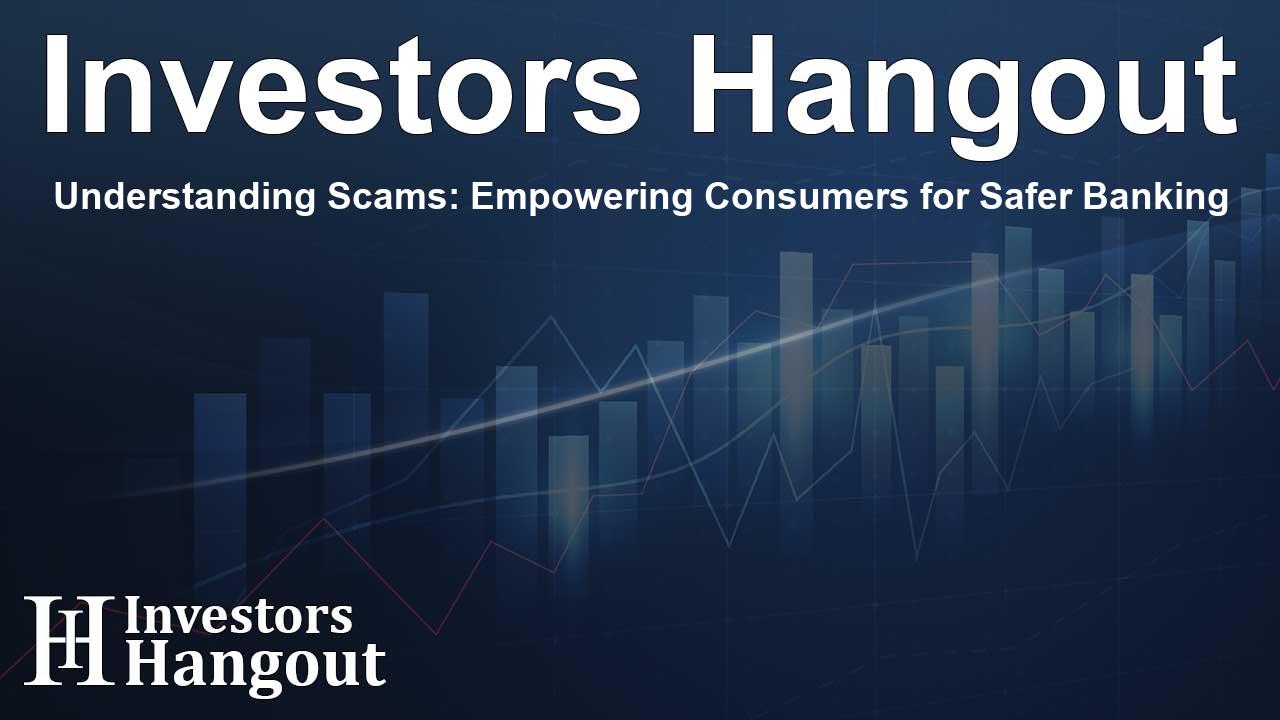Understanding Scams: Empowering Consumers for Safer Banking

Recognizing Scams to Safeguard Your Finances
It is essential to stay informed about scams to protect your financial security. In recent years, the rise of scams has escalated dramatically, with an alarming report indicating that scammers lifted around $12.5 billion from unsuspecting consumers in a single year. This staggering figure highlights the urgent need for individuals to refine their skills in identifying potential scams in various formats, including emails, texts, phone calls, social media messages, and payment applications.
Today's criminals are increasingly adept at using deception to infiltrate your life. For instance, although the usage of checks has seen a decline, reports of check fraud have spiked significantly since 2021. As fraudsters grow more sophisticated in their tactics, it becomes crucial to remain vigilant and aware of the signs indicating a possible scam.
ABA's Initiatives to Combat Scam Awareness
In response to this alarming trend, the American Bankers Association (ABA) launched initiatives aimed at consumer education, such as the campaigns #BanksNeverAskThat and #PracticeSafeChecks. These campaigns, in collaboration with banks across the nation, seek to empower consumers utilizing engaging and humorous content. The goal is to help people recognize fraudulent communications that request sensitive information, including account numbers, passwords, or Social Security numbers.
These programs utilize relatable scenarios and modern communication styles, ensuring that consumers can internalize vital safety measures in an enjoyable manner. This approach not only captures attention but also fosters a healthier understanding of how to engage with banking institutions securely.
Expert Advice from Paul Benda
Paul Benda, ABA's Executive Vice President for Risk, Fraud, and Cybersecurity, plays a crucial role in these initiatives. With a wealth of experience in both government and private sectors, Paul offers practical tips and insights that empower consumers to safeguard themselves. His leadership in the ABA Fraud Coordination Group provides a platform for disseminating actionable advice that effectively combats scams.
Paul's background in cybersecurity and access to a network of experts makes him an invaluable resource for information on how to detect and avoid scams. His knowledge stems from substantial leadership roles within the Department of Homeland Security and Defense, where he was instrumental in developing security measures for high-profile projects.
Banking Industry's Commitment to Consumer Protection
The banking industry, represented by the American Bankers Association, acknowledges the emotional and financial impacts of fraud on customers. With a collective value of the banking industry totaling approximately $25 trillion, the commitment to protective measures is resolute. The association consists of small, regional, and major banks employing around 2.1 million people, safeguarding nearly $19.7 trillion in deposits, and extending approximately $13.1 trillion in loans.
These institutions are aware that fraud takes a toll not just on finances but also on the emotional well-being of their clients. To combat this, efforts to enhance customer protection are paramount, and banks proactively invest in measures designed to outsmart increasingly clever fraudsters.
Resources for Consumers
To learn more about recognizing scams and protecting your sensitive information, consider visiting the ABA's valuable resources. Their programs, including #BanksNeverAskThat and #PracticeSafeChecks, are tailored to educate consumers about the signs of fraud and preventative strategies. By staying informed, individuals can play a significant role in their own safety as well as the wellbeing of their communities.
Frequently Asked Questions
What are some common types of scams today?
Scammers today often use emails, text messages, phone calls, and social media to perpetrate fraud, focusing on gathering sensitive information from individuals.
How can I identify a scam email or message?
Look for signs such as spelling errors, unfamiliar sender addresses, or requests for sensitive information. Genuine institutions typically do not ask for sensitive details through these channels.
What should I do if I suspect a scam?
If you believe you are experiencing a scam, cease communications, and report the incident to your bank or relevant authorities for guidance and assistance.
How does ABA support consumers against scams?
The American Bankers Association promotes initiatives like #BanksNeverAskThat to educate consumers on recognizing scams and protecting their financial information.
Who can I contact for more fraud prevention information?
Consult your bank's fraud prevention resources or visit the American Bankers Association's websites for comprehensive guidance on staying safe from scams.
About The Author
Contact Logan Wright privately here. Or send an email with ATTN: Logan Wright as the subject to contact@investorshangout.com.
About Investors Hangout
Investors Hangout is a leading online stock forum for financial discussion and learning, offering a wide range of free tools and resources. It draws in traders of all levels, who exchange market knowledge, investigate trading tactics, and keep an eye on industry developments in real time. Featuring financial articles, stock message boards, quotes, charts, company profiles, and live news updates. Through cooperative learning and a wealth of informational resources, it helps users from novices creating their first portfolios to experts honing their techniques. Join Investors Hangout today: https://investorshangout.com/
The content of this article is based on factual, publicly available information and does not represent legal, financial, or investment advice. Investors Hangout does not offer financial advice, and the author is not a licensed financial advisor. Consult a qualified advisor before making any financial or investment decisions based on this article. This article should not be considered advice to purchase, sell, or hold any securities or other investments. If any of the material provided here is inaccurate, please contact us for corrections.
